
Thanks to Stefano Antonetti, Bernard Farkin and Manuel Perez for commenting and editing this article.
As of 1957, it is estimated that on average 132 orbital launches have been made per year, leading to a total of about eight thousand. 4256 satellites were traced by UNOOSA in August 2016, of which only 1419 (33%) are operating. About 18,000 are orbital scrap large enough (more than 10 cm.) to be traced. About 64% of traceable objects are fragments resulting from destructive events such as explosions or collisions. A much larger population of debris can not be monitored operationally. In the space between low orbit (LEO, 300 km) and geostationary orbit(GEO, 36 thousand km) travel – at orbital velocity – an estimated number of 700,000 objects larger than 1 cm and 170 million objects of dimensions greater than 1 mm. Which means that the near Earth space region becomes more and more dangerous. But this is not the aspect I want to talk about today. Those who know me for my predominantly philosophical works may be surprised by this article, which includes a number of economic and social considerations. In fact, I want to demonstrate the convenience — today, and not in a distant future — of investing in orbital industrial activities conducted by human technicians, with respect to fully robotic operations. Moreover, without offending all those who continue to oppose and fear civilian expansion into outer space, it is enough to analyse the environment we are talking about, to understand that the most promising activities are simply unworkable without the presence of human operators. This is a presentist vision rather than a futurist one: Space Renaissance, the international association that i am honored to preside, promotes civil expansion in outer space, we aim to stimulate investments, revive the economy and develop millions of new jobs today, and not in the near future …
Space debris: do we need an orbital car crusher?
So let’s start from scrap, or space waste, or debris… I.e. objects that, according to a very common opinion, no longer have any useful purpose. But is it true? Let’s make some calculations.
The total weight of space scrap is about 7,500 tons, or 7.5 million kilograms. The cost of ground-to-orbit transport has remained steady over the last 50 years, around $ 20,000 per kilo, kept high by a cartel made up of large builders of expendable rockets, grouped in the North American ULA (United Launch Alliance). Recent history sees China and India positioning their payload price between $ 10 and $ 25,000 per kilo. But the monopoly of spendable rockets was broken only by the advent of Space X’s reusable launchers, which triggered a Renaissance process of which we have seen so far only the first steps. How much did it cost to send 7.5 Million Kilos of terrestrial artifacts? At $ 20,000 per kilo, about $ 300 billion. If we then add the costs of design, construction and management, it is not difficult to get a total cost of close to 1 $ trillion. Considering that the current price of gold is around $ 41,000 per kilo, it is like saying that we have a heritage comparable to 7.5 million pounds of gold orbiting over our heads, if we like to see it from an economic point of view. If, like me, you want to see it from the civilisation ethical and evolutionary point of view as well, it is aaas if we wanted to lock ourselves in a golden cage, but without taking care, so far, to develop systems capable of remedying this disaster.
We can even smile, although it’s a bitter smile. Do we bear in mind the case of big citiy waste? The situation is not different, indeed: waste constitutes an environmental tragedy only for those who have not yet decided to use it. For those who own good recycling facilities, waste is worth gold! In addition, for the plant owners, the profit is made twice, as it not only produces energy and materials of various use, but they are paid to receive the waste from those who are not equipped to use them as well! We can well imagine how those who have invested in the recycling industry have a cynical but understandable smile on their face, when considering the still large array of suckers who pay to dispose of their wealth!
Did you get the picture, looking down at the ground? Well, now look up. We immediately realize that, with regard to so-called space waste, the whole world is blind, and no companies have yet emerged capable of investing in the facilities needed for the collection, processing and reuse of this immense orbital wealth. By developing orbiting modular workshops – the experience with the International Space Station is fundamental – we can begin to capture scrap, separate metals from plastic, grind the various components and extract dust, the “raw” material for 3d printing. What are we waiting for?
New space industry is taking first steps on this roadmap. D-ORBIT, a small Italian company, develops a system for satellite decommissioning at the end of their life cycle. A first step, aimed at not producing new waste. But all travel begins with a first step. And the fact that there are those who reason and operate at this level is quite comforting, indeed.
Disposing of new satellites by means of special on board subsystems, causing them to burn up in the atmosphere, is a necessary precautionary measure, aimed at limiting the production of new waste. Capturing existing scrap, and throwing it in the same way into the “incinerator” of reentering the atmosphere, would solve the problem of orbital remediation. However, in the medium to long term, these are “losing” investments, since they are not aimed at using the wealth of space scrap, but rather adds costs to the terrestrial community. Economically speaking, the destruction of waste, both on the ground and in space, is equivalent in value to destroying a great value. Not to mention that, however, in order to capture orbital scrap, we will already need machines capable of interorbital maneuvers, piloted and operated by human beings. Therefore, it is worth dealing with a more ambitious program at the outset, and at the same time develop both collection and process-reuse facilities.
It is clear that, with such a wider range of views, we are including a much larger number of stakeholders: the security of orbital flights — any mission or freight or passengers transportation for anywhere in space must pass through Earth orbit–, whatever their motivation and destination, exploration or tourism, low orbit or Jupiter moons, industrial research or settlement, etc …; short / medium term investment return; global industrial and economic development; social benefits, employment, the development of new markets.
Workshops, service stations and orbital factories
And here we come to the second great and promising presentist challenge. Space scrap recovery and recycling connects fluidly, seamlessly with another major industrial activity. Our orbital workshops, already set up on site with the aim of collecting and processing space scrap, are enriched and differentiated by another feature: the in-orbit assembly of satellites. Supported by robotic mechanisms, our workshop starts to become an orbital satellite factory. Do you like using some retro terms, like “factory”? Although strongly projected onto Renaissance innovation, we are also extremely conscious of how much we owe to our parents and grandparents … who have given their sweat and often their lives, building industrial civilization 1.0. And we like to continue to use certain terms as a tribute to that civilization that they had built with hope in a better future… at the dawn of the Renaissance of Industrial Civilization 2.0, hoping and struggling so that this was the end of the pre-space-age recession.
So, for investors, assembling satellites in orbit by human technicians will lead to a substantial reduction in many sources of expenditure. Firstly, we should bear in mind that every ground-assembled satellite needs expensive automation for the deployment of photovoltaic panels and communication antennas. Such automated mechanisms are also very expensive, since they must be robust enough to withstand the great vibrations and huge accelerations of the launch. If the assembly of the satellite will be in orbit, we can get rid of such mechanisms. And the weight to be dispatched to orbit will be less. Secondly, consider that, with the exception of orbital telescopes, any satellite maintenance is very expensive in the present paradigm, and therefore unfeasible. The components are thus very costly, since they shall be resistant to cosmic hard radiation, and responsive to the most restrictive fault tolerance and fault avoidance requirements. Our orbital workshops could take care of the satellites’ location as well as of their periodic maintenance and repair, which would allow the use of commercial components at a much lower cost. Finally, orbital workshops could take care of the satellites de-commissioning at the end of their lifecycle, so they would also save automated decommissioning systems, at least for larger machines. The decommissioning subsystems of the smaller satellites could be programmed to return to the nearest collection station at the end of their life. It goes without saying that the periodic maintenance of the satellites would lengthen their life, resulting in a further reduction in overall costs and parallel increase in profitability.
Summarizing: any automation that we can avoid onboard the satellite reduces the cost of design, components, development, testing, integration and launch. But it’s not over here: we talked about recycling. And here we close a first circle: with the material output of the scrap processing plants we will feed the orbital factories, which can produce parts of satellites in orbit, by means of 3d printing, further reducing the development and launch costs! Here, the frontier begins to produce on its own, and then to start a real exo-economy, though still tied to Earth by a robust umbilical cord …
So far, we have only talked about two orbital industrial threads, space scrap recycling and in-orbit satellites assembly. But urgently need to start get the ball rolling! A myriad of jobs and trades will be born around and supporting civil industrial activities in space. Just think only of the vast constellation of jobs that were born following the development of the web and the development of renewable energy sources … scared about artificial intelligence? It does not make sense! The world is so varied, and the environment of outer space even more so, that we can not do without human intelligence, creativity and flexibility – provided that it was convenient to do without, and we saw that it is not. Above all, we can never ask for a machine, apart from seeing a danger for which it was not programmed, to have insight into the potentials that become evident in the most inscrutable ways to human mind, often re-emerging after a day of depression and pessimism … or in front of a spectacular rise of blue Earth from the lunar horizon …
So let’s list here in bulk, but we’ll come back soon with more details, a series of industrial activities that can all be done on a 20-year horizon, thanks to new enabling technologies such as reusable launch systems, and additive manufacturing: large orbital solar energy collection facilities, fueling stations for geo-lunar and interplanetary transports, lunar and asteroid raw material processing plants, orbital, lunar and lunar orbital hotels, orbital yards for construction and assembly of spacecraft for various destinations, low and zero gravity hospitals, lunar and asteroid minerals mining, spinning orbital villages, lunar research, exploration, and industrial infrastructures.
All this opens another chapter that also needs to be urgently addressed: space law, which is firmly bound to the Treaty on the Peaceful Use of the Outer Space, which is the 50th anniversary this year. We will talk about this soon.
In 2017 Space Renaissance will develop, or contribute to, several initiatives as part of the Space Renaissance Tour:
– Nigeria, 18-21 October 2017 – Lead City University, Ibadan, hosts the first event of the Space Renaissance Tour:
The Event’s home page on the Space Renaissance website
The Event on Facebook
The Space Renaissance Nigeria Facebook page
– USA, USIP, October 10th, Outer Space Treaty, 50 Years Anniversary, news will be given on:
the Space Renaissance USA, Inc website. and
the Space Renaissance USA Facebook page
– Italia, Outer Space Treaty, 50 Years Anniversary: an opportunity to boost the adoption of a true space law system, to rule and support civil activities in space, news will be given on:
the Space Renaissance Italia website and
the Space Renaissance Italia Facebook page
– UK, Space Renaissance Tour events will take place in Glasgow and Edinbourgh, stay tuned on:
the Space Renaissance UK Facebook page
Please also don’t forget, to develop all of the above, and more, we do need money… donate to the Space Renaissance Tour Crowdfunding campaign
And join us, registering as a member of the Space Renaissance
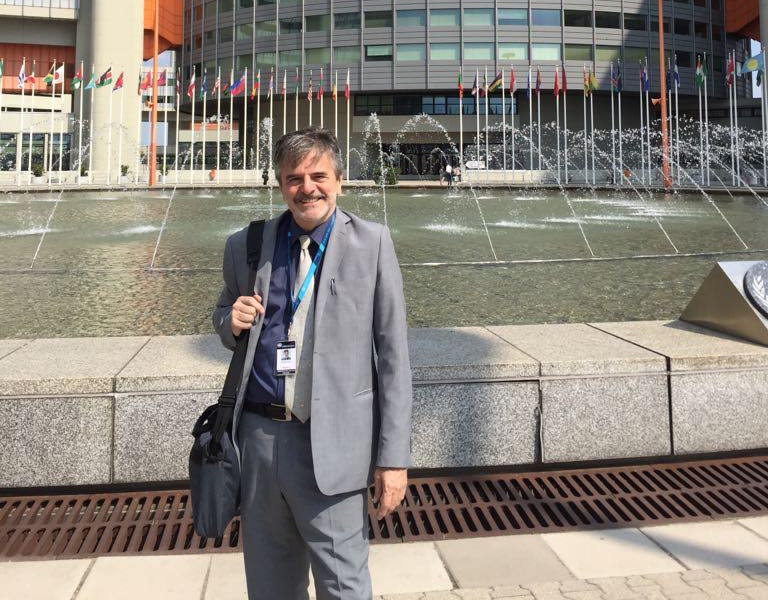
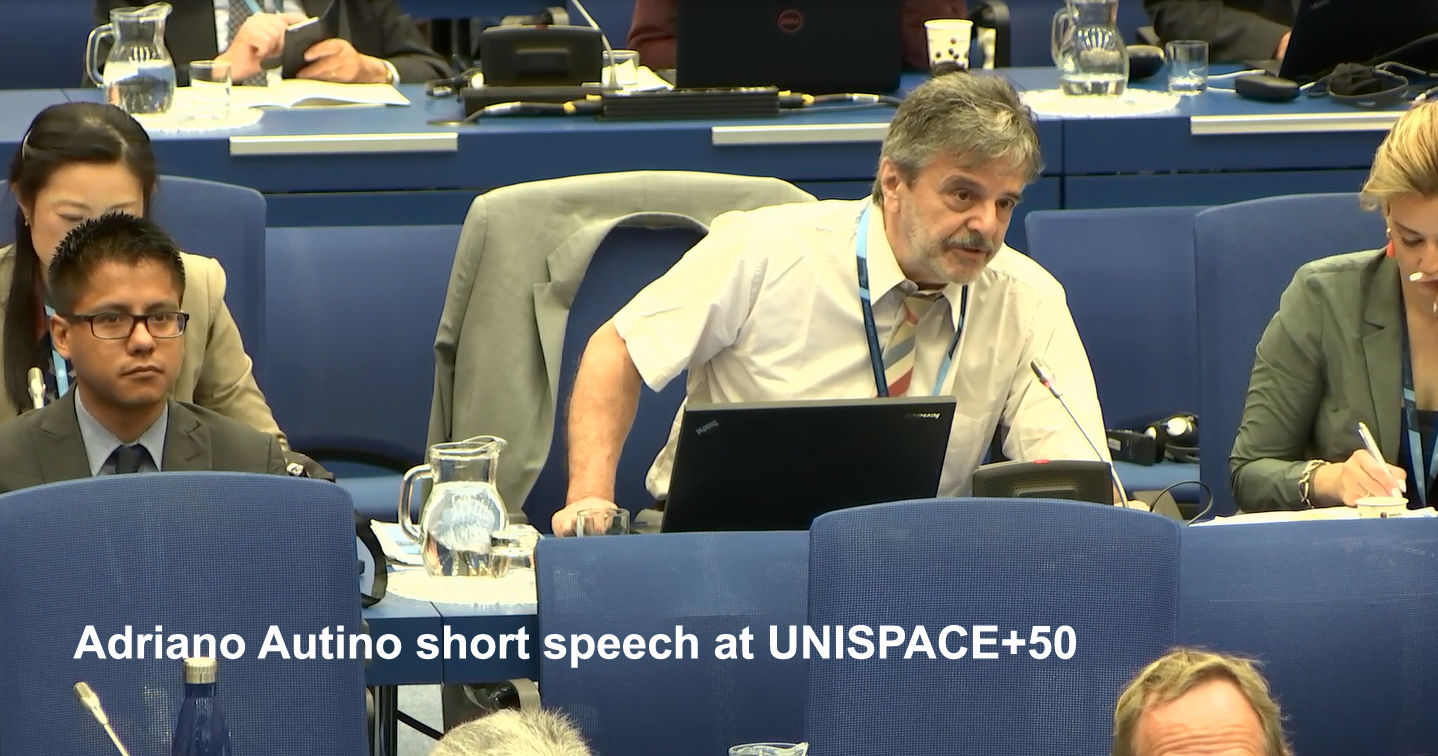
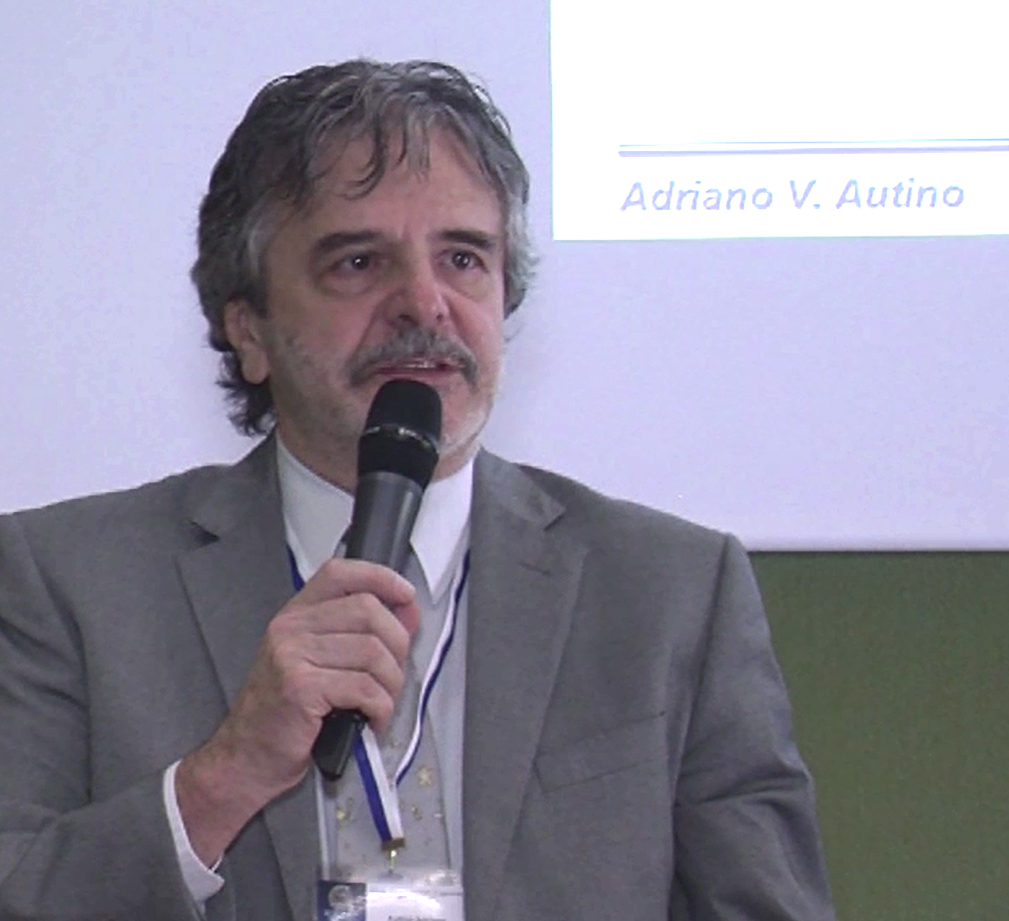
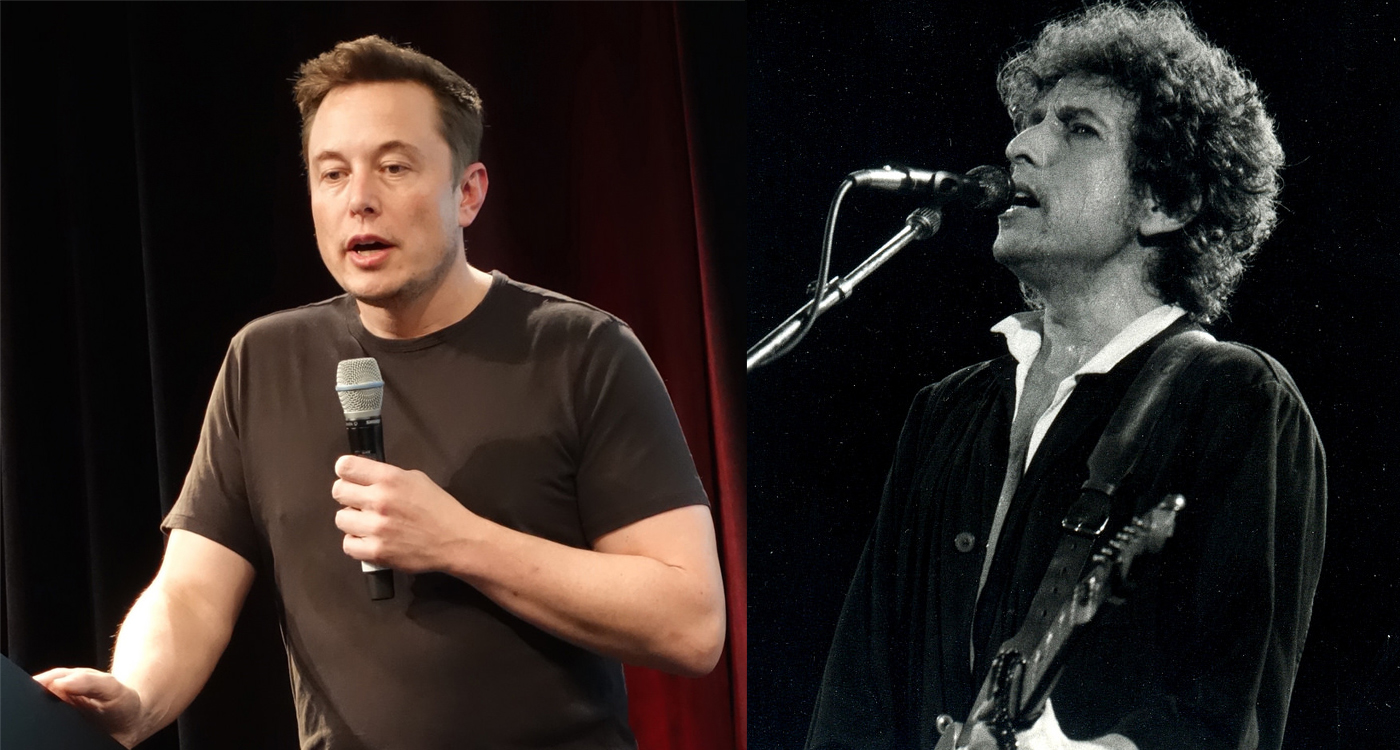
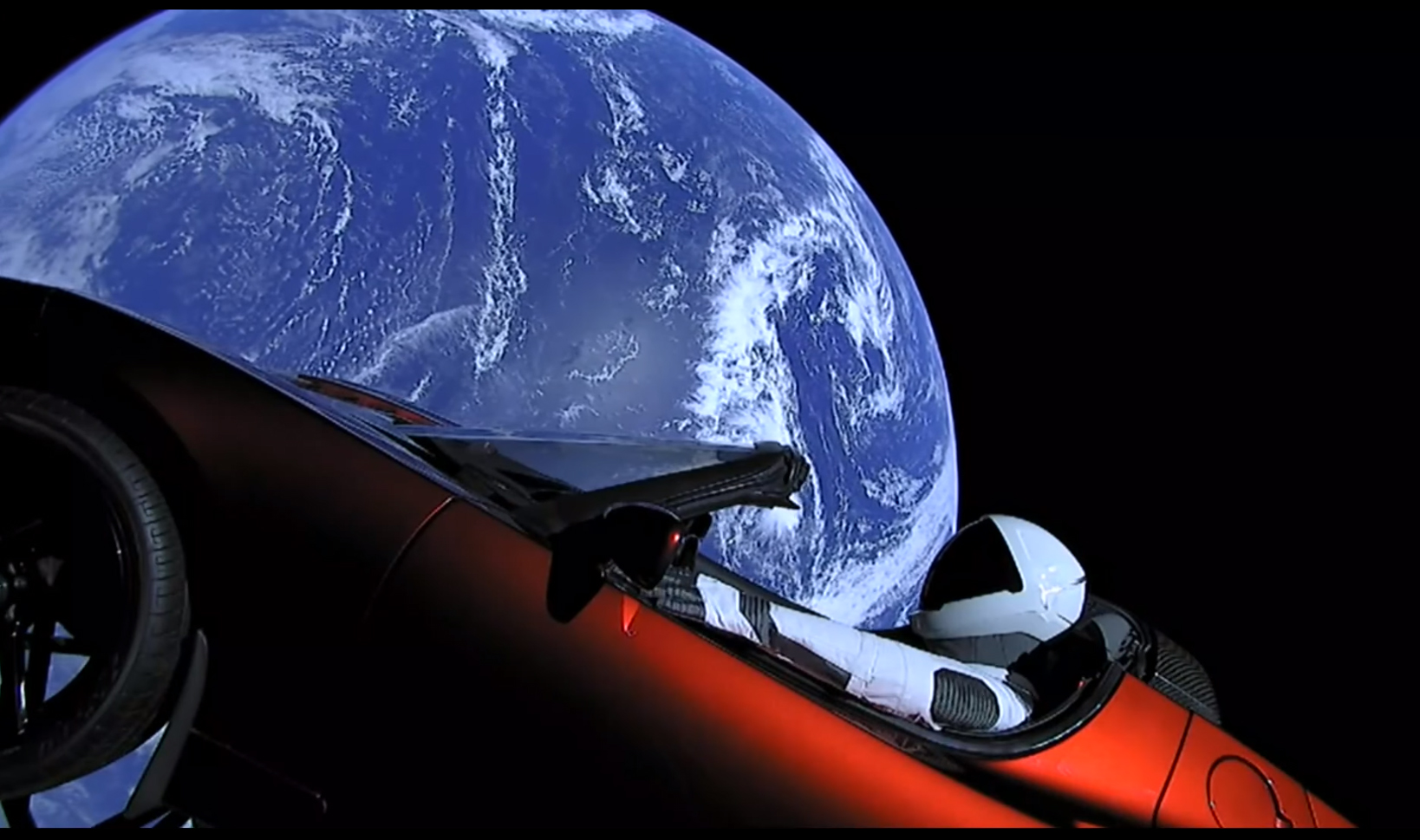
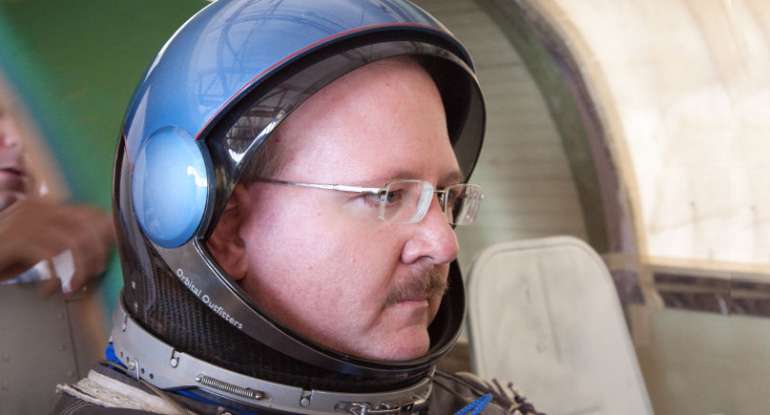
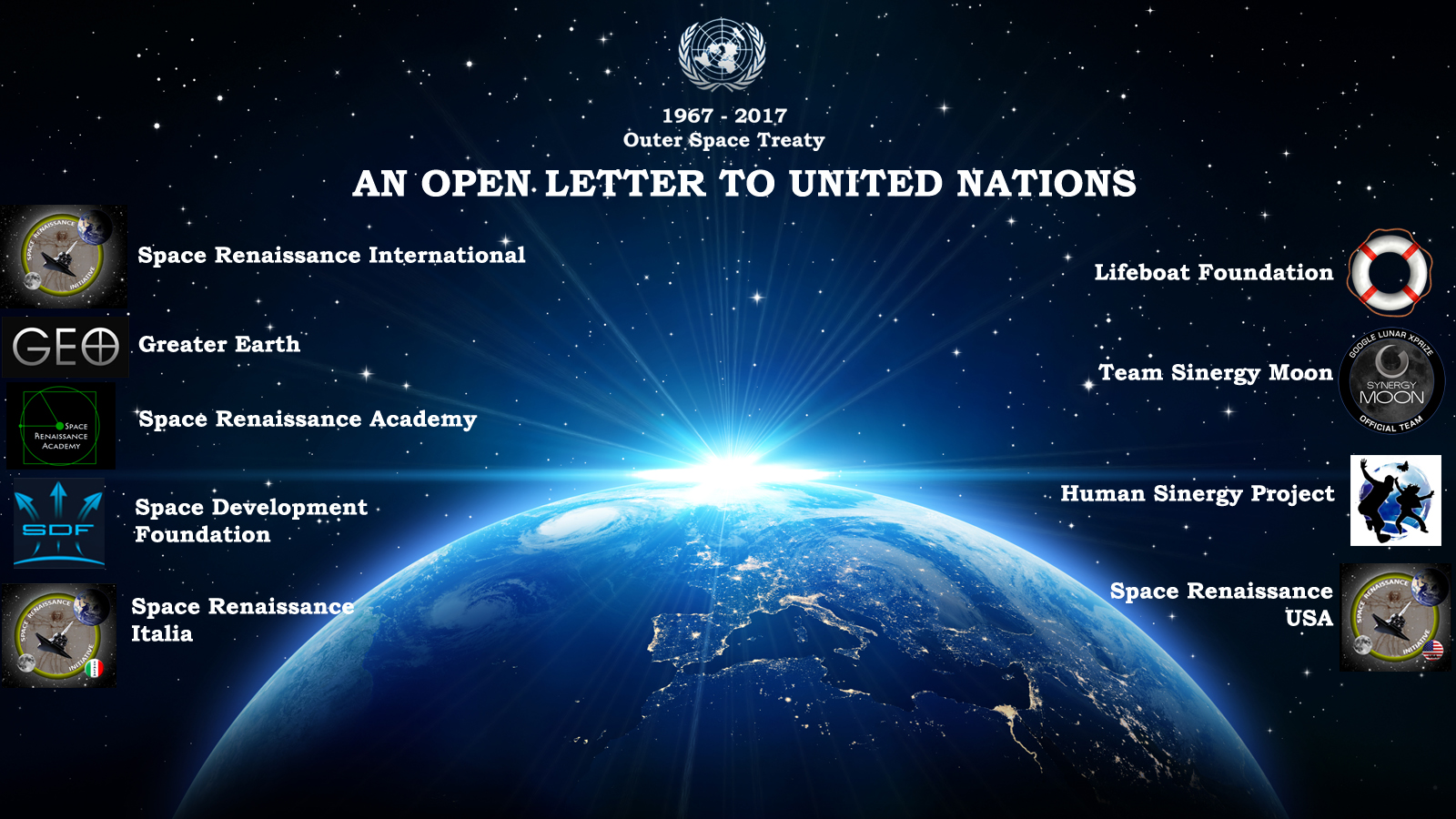



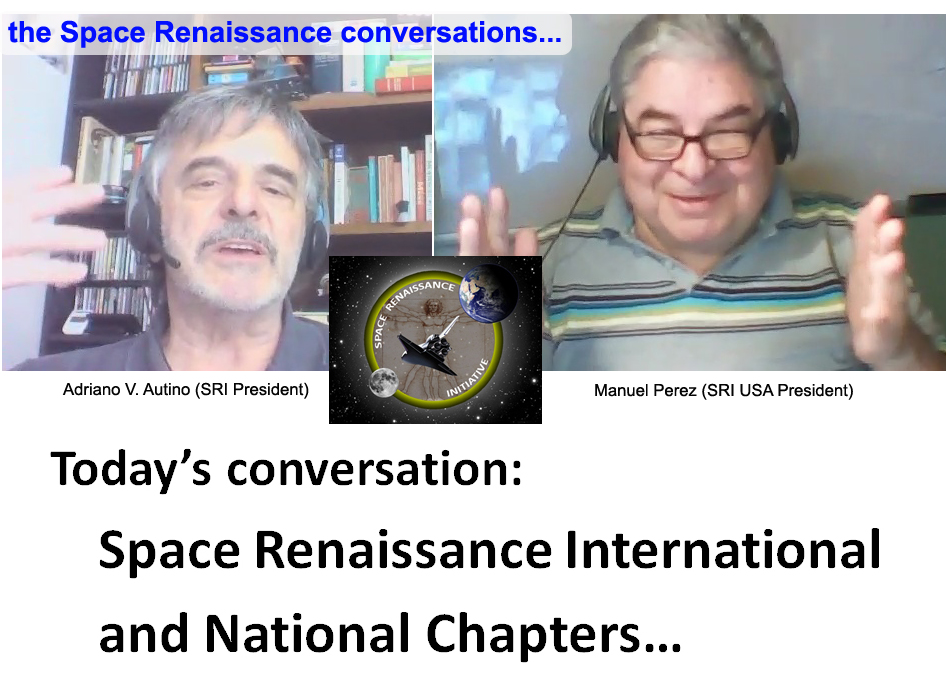


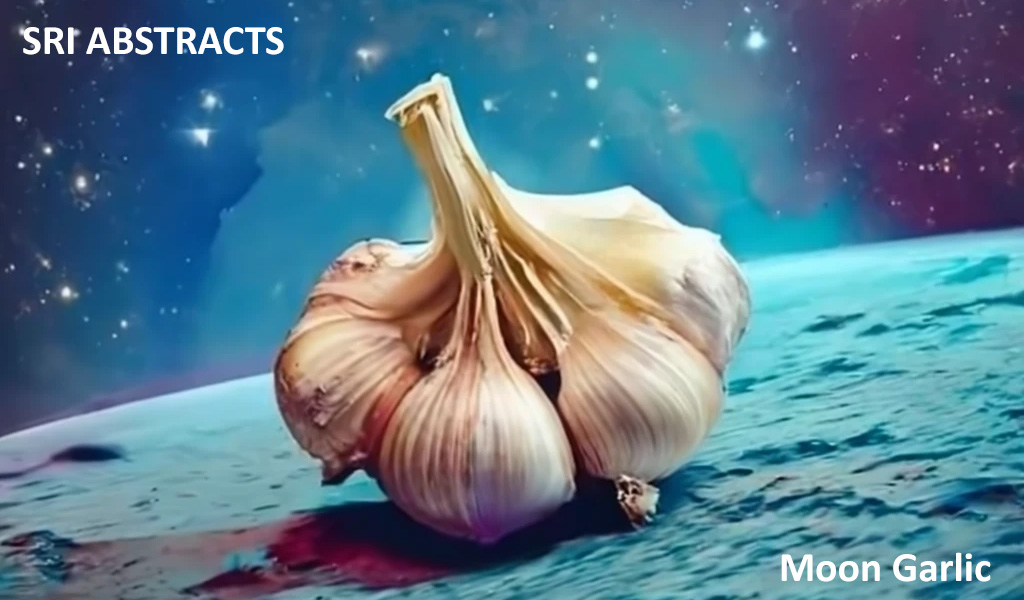





 Space Renaissance France (French Chapter of SRI)
Space Renaissance France (French Chapter of SRI)  Space Renaissance USA, Inc. (USA Chapter of SRI)
Space Renaissance USA, Inc. (USA Chapter of SRI) Space Renaissance (Italian Chapter of SRI)
Space Renaissance (Italian Chapter of SRI) Space Renaissance Academy
Space Renaissance Academy Space Renaissance Initiative Group
Space Renaissance Initiative Group